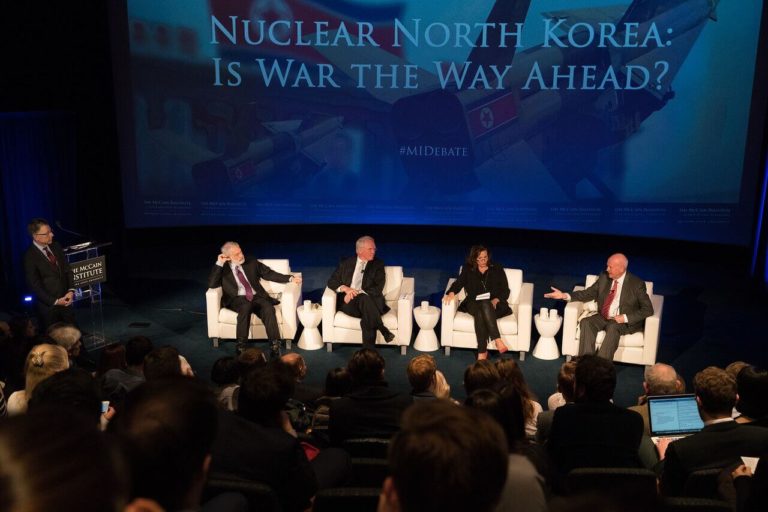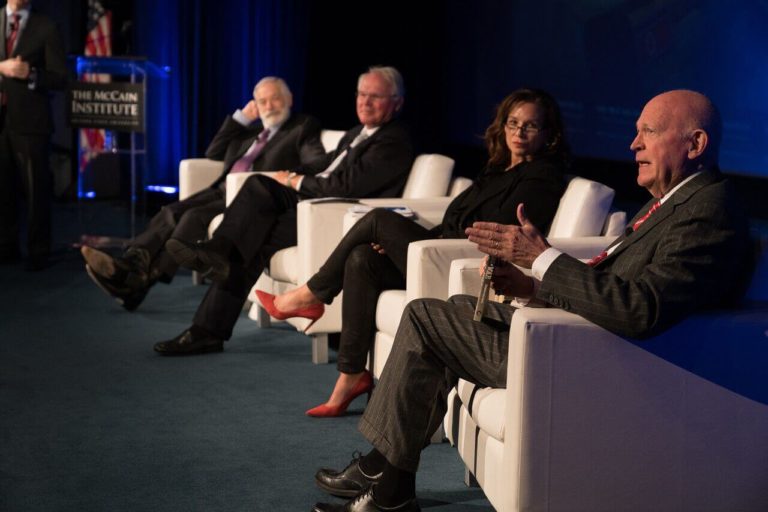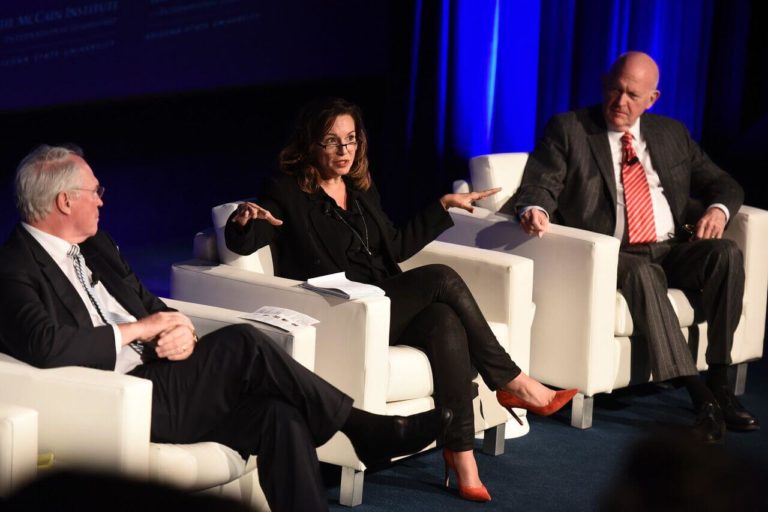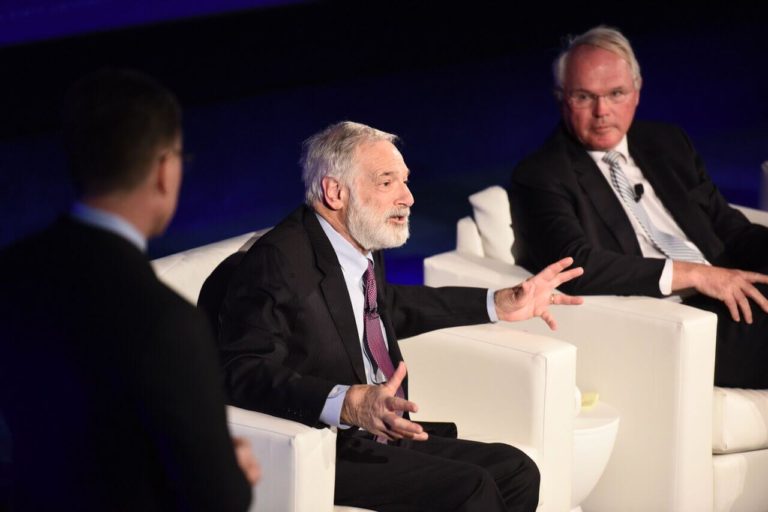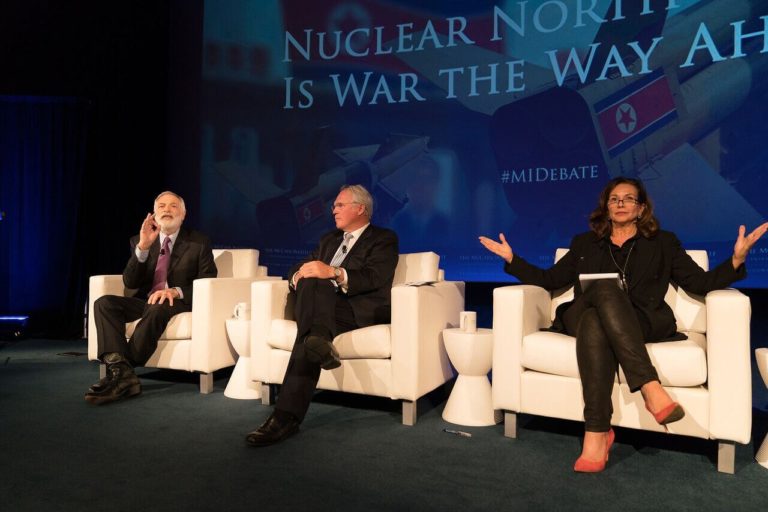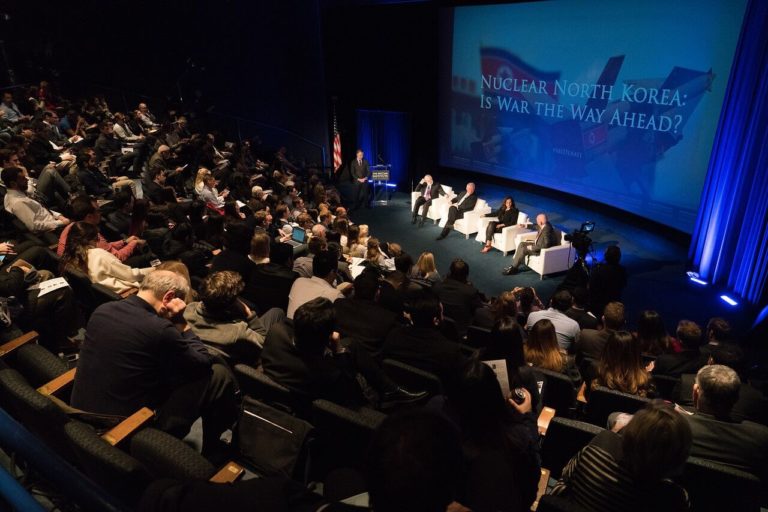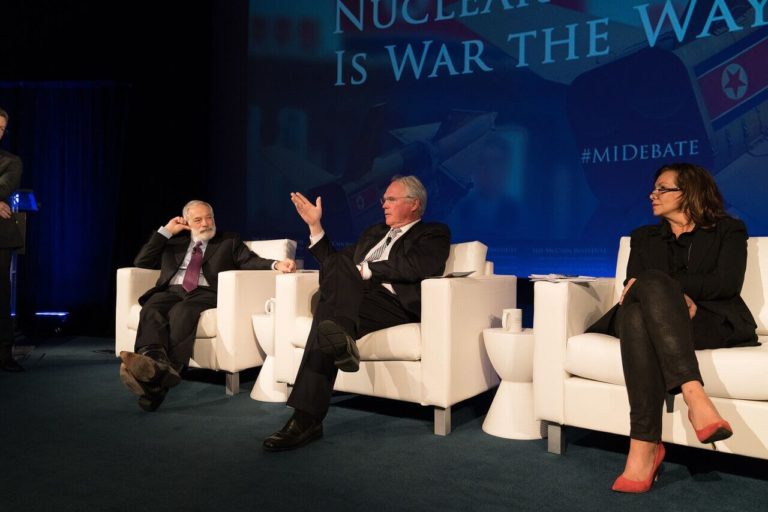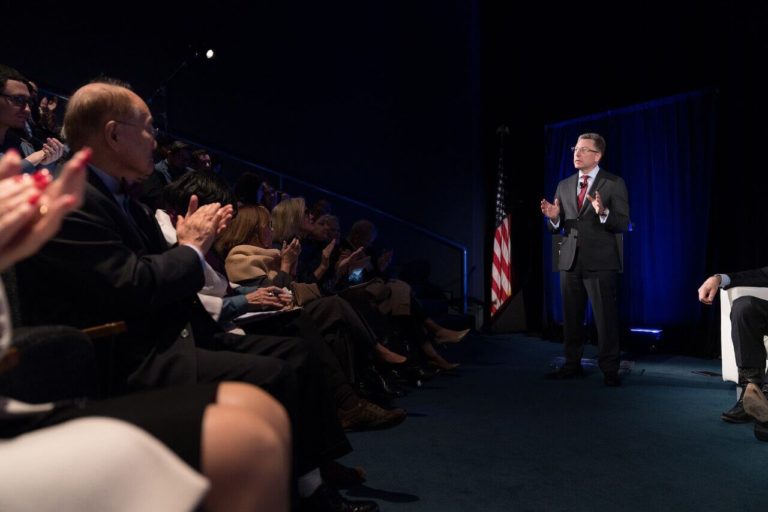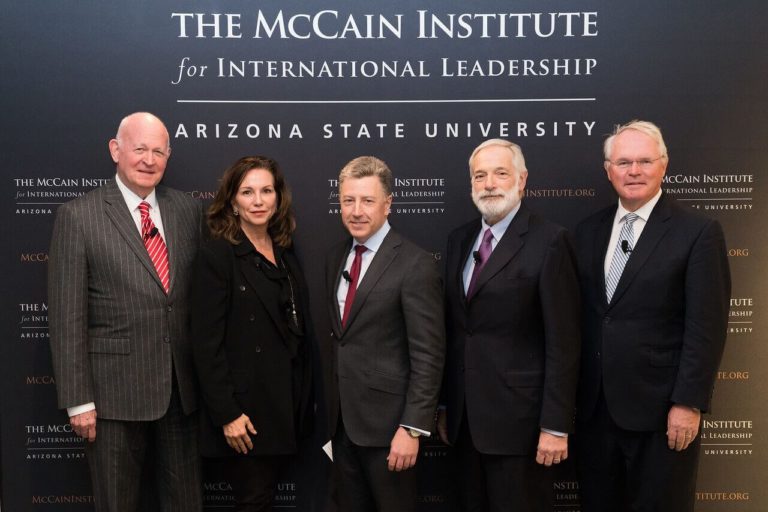Full Video
On February 28, 2018, the McCain Institute for International Leadership at Arizona State University hosted the latest installment in its Debate and Decision Series, “Nuclear North Korea: Is War the Way Ahead?” The debate featured Ambassador Robert Gallucci, Ambassador Christopher Hill, Mary Beth Long, Michael Pillsbury and was moderated by Ambassador Kurt Volker.
Arguing that NO, War Is Not the Way Ahead:
Ambassador Robert Gallucci
Distinguished Professor in the Practice of Diplomacy, Georgetown University; and Chairman the US-Korea Institute, John Hopkins University, SAIS
Ambassador Christopher Hill
Global Engagement Advisor, University of Denver; Ret. 25th Assistant Secretary of State for East Asia and Pacific Affairs; and U.S. Ambassador to Iraq, South Korea, Poland, and Macedonia
Presenting the argument that war should not be the way ahead, Amb. Gallucci and Amb. Hill argued that the United States must continue to pursue negotiations with North Korea. Amb. Gallucci believed “not trying negotiation” would be an irrational decision for the United States to make, and that the United States would eventually come to the negotiation table because “there is no good option for [the United States].” Amb. Gallucci thought that North Korea is unlikely to dispose of its nuclear weapons, but negotiations should work towards “a good deal” that improves the national security of the United States and its allies.
Both Amb. Gallucci and Amb. Hill warned against a “bloody nose” strike against North Korea’s nuclear facilities. Amb. Hill noted that a preemptive attack would only temporarily disable North Korea’s nuclear program, and both panelists agreed that such an attack would precipitate reprisal strikes against South Korea and Japan. Rather than pursuing military action, both ambassadors advocated containing the threat from North Korea through sustained deterrence and increasingly crushing sanctions.
Amb. Hill acknowledged that the alliance between the United States and South Korea is the primary motivation for North Korea’s nuclear ambitions “This is a country that is aiming weapons at [the United States] for the purpose of decoupling the U.S.-South Korea relationship,” Amb. Hill stated in his opening argument. He recommended “sanctions, alliance management, getting South Korea and Japan to work together,” as well as working closely with China. Amb. Gallucci also highlighted the importance of including China, noting that the collapse of the Kim dynasty “is not on [North Korea’s] agenda.”
Arguing that YES, War Is Possible:
Mary Beth Long
National Security and Foreign Policy Expert, Former Assistant Secretary of Defense for International Security Affairs, Former Chairman of the High-Level Committee responsible for NATO’s nuclear policy, and Advisor to NATO
Michael Pillsbury
East Asia & Pacific Defense Policy Expert, Senior Fellow at the Hudson Institute, Former Assistant Under Secretary of Defense for Policy Planning, Senator Staffer, DOD Special Assistant for Asian Affairs, and author of books and reports on China, including The Hundred-Year Marathon
Arguing that war is a distinct possibility, Long and Pillsbury contended that the United States must take a new approach towards resolving the nuclear crisis with North Korea. Long noted that the United States, “has been negotiating with North Korea since the end of the Korean War,” stating that North Korea has broken every agreed-upon legal and diplomatic obligation.
Pillsbury endorsed the Trump administration’s public talks on the use of force to supplement the perception that war is distinctly possible, and argued that the use of sanctions has not been tried fully yet. Current sanctions should target the Kim family directly. Pillsbury noted that China is key to Trump’s strategy to North Korea and that the interests of the United States and China are becoming more similar as this crisis precipitates.
In terms of potential military actions that the United States could take against North Korea, Long noted the gray-area between war and peace, suggesting that the United States expand its missile defense systems, strengthen Pacific alliances, exert greater control over maritime trade around the Korean Peninsula, and explore more aggressive options such as limited cyberattacks or a naval embargo. Long made it clear that she found “the use of enthusiastically advocating war insulting,” and that the United States’ current position “is a reluctant recognition” that the West Coast could be the target of a North Korean nuclear weapon.
CONCLUSIONS AND RECOMMENDATIONS
- Gallucci: The administration should continue to pursue and tighten multilateral sanctions against North Korea. With the increased economic pressure, the United States should do everything possible to keep the current alliance system in the Pacific intact and pursue negotiations.
- Hill: The United States should give a stronger commitment to its alliance with South Korea which has served both countries well since the Korean War. Likewise, the current administration should work closely with China to create a peaceful and sustainable solution.
- Long: The United States has been in negotiations with North Korea for decades, to no avail. When North Korea possesses an intercontinental ballistic missile capable of hitting cities in the United States, it a critical threat level. North Korea is changing rapidly, so the policies of the United States must change as well.
- Pillsbury: The United States should exert “maximum pressure” against North Korea. Additionally, the United States must work with regional actors such as China, South Korea, Japan and even Russia, to exert this pressure on the Kim regime.
